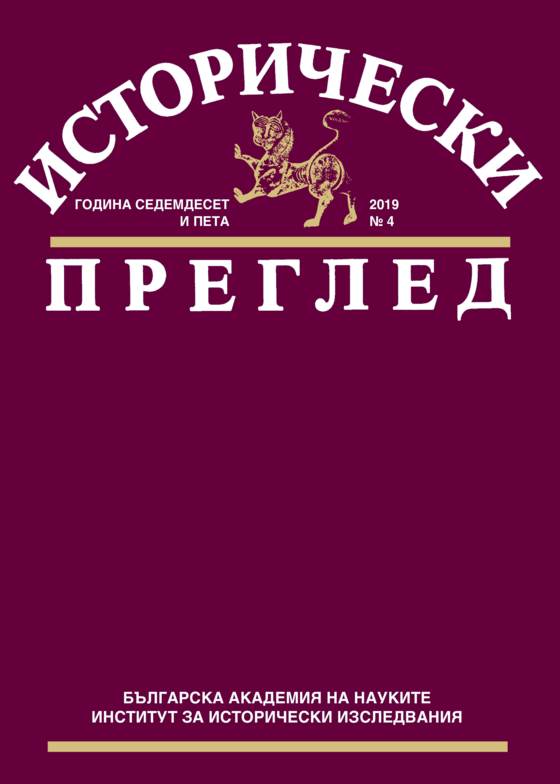Странстващи и уседнали селски търговци в провинция Румелия в края на ХVІІ–ХVІІІ век
Itinerant and settled rural merchants in the Province of Rumeli at the late Seventeenth and Eighteenth Centuries
Author(s): Stefka ParvevaSubject(s): History, Economic history, Local History / Microhistory, Political history, Social history, Modern Age, Special Historiographies:, 17th Century, 18th Century, The Ottoman Empire
Published by: Институт за исторически изследвания - Българска академия на науките
Keywords: rural merchants; material status; migration; trade associations; credit; kadı court;
Summary/Abstract: Studies in the field of trade show that the main contingent of traders originated in urban communities and worked on urban and international markets. But as far as nine out of ten of the subjects of the sultan in Bulgarian lands were peasants, it is logical to assume that some of them earned their living in the field of trade. In this regard, it should be noted that the issue concerning the involvement of peasants as professional traders in the economic life of the Ottoman Empire has remained poorly investigated in the historiography on the subject. The study seeks to outline an approximate portrait of the itinerant and settled rural merchants who participated in the trade, both between a town and a village, and among different regions of the empire at the late seventeenth and eighteenth centuries. Features of their family and property status have been reconstructed on the basis of individual case studies. Issues related to the legal regulation of their business activities are analyzed. The assortment and volumes of the goods sold by them are also investigated. The author examines the problems related to the commercial practices of association of rural traders and crediting such traders. Conclusions were drawn regarding the involvement of institutions in regulating business and relations between traders and their families, partners and creditors; the level of their literacy; the role of their journeys on the level of awareness of the communities in which they operate; the importance of their professional activity in the formation of the modern traders in the Bulgarian society from the pre-Tanzimat period. The study relies on unpublished Ottoman-Turkish documents – estate inventories of deceased merchants, litigations on associations and loans, sultan fermans, petitions and complaints, tax registrations, as well as promulgated laws, travelogues, and more.
Journal: Исторически преглед
- Issue Year: 2019
- Issue No: 4
- Page Range: 32-115
- Page Count: 84
- Language: Bulgarian
- Content File-PDF

